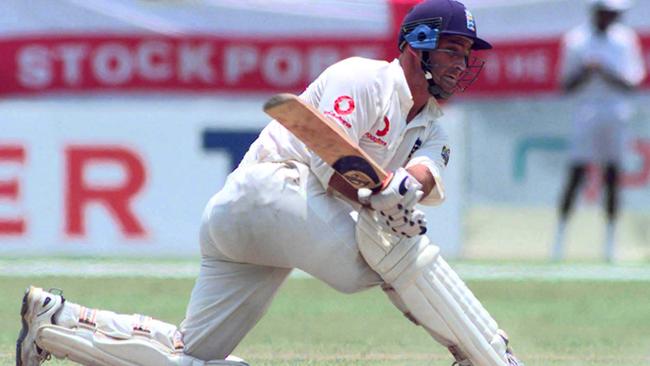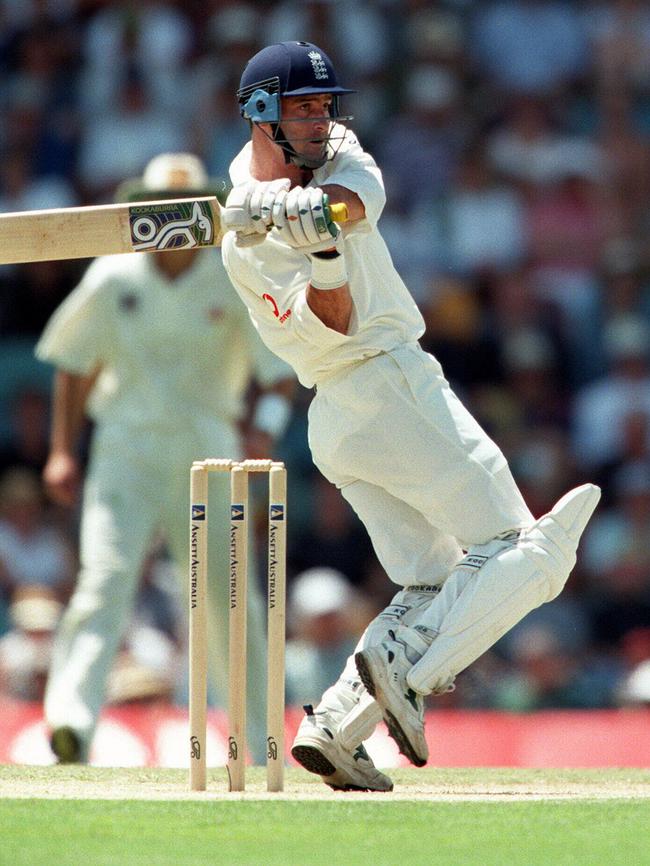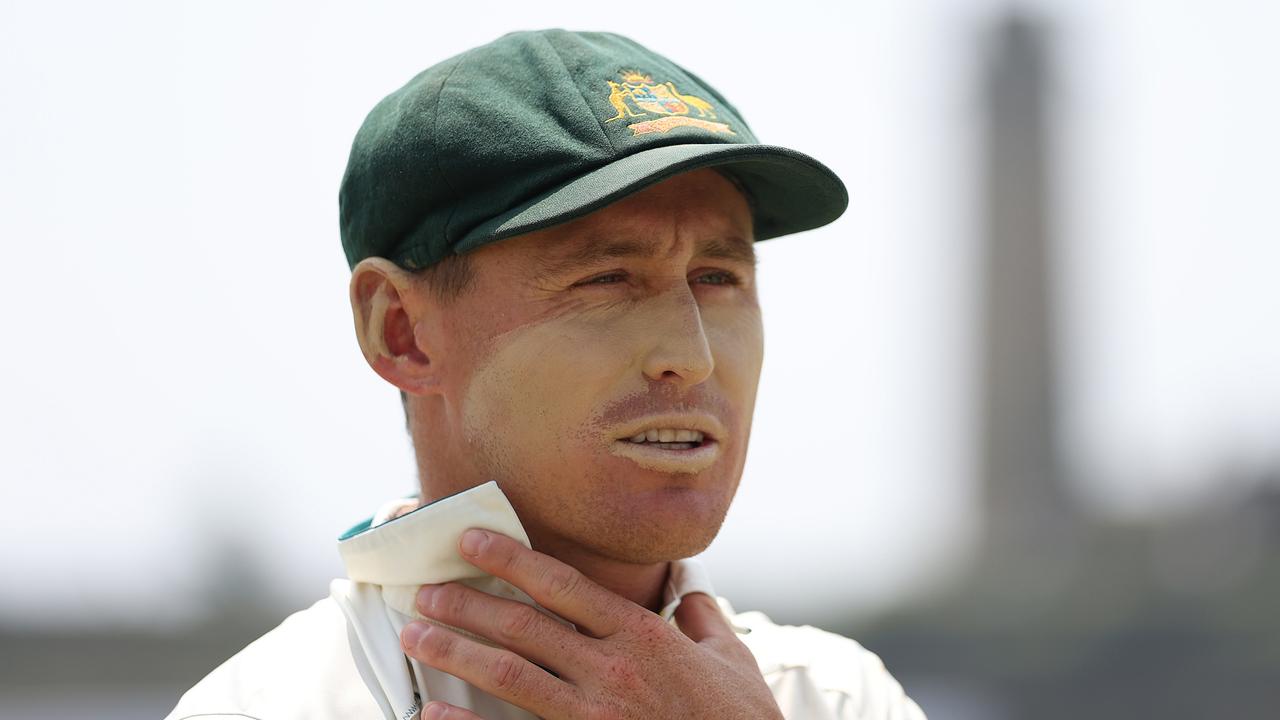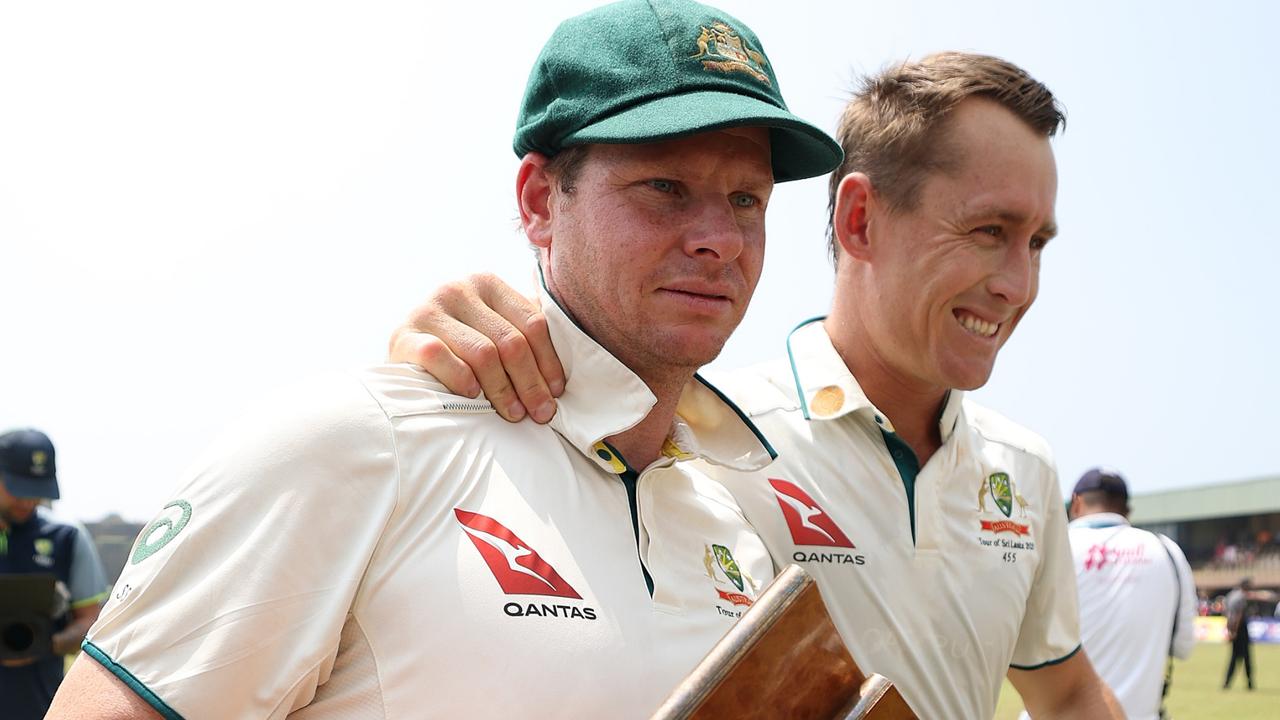Gritty batsman Graham Thorpe often dug England out of trouble
Mike Atherton described 100-Test veteran Graham Thorpe as ‘unquestionably the most complete batsman of our generation’.

OBITUARY
Graham Paul Thorpe, cricketer, born Farnham, Surrey, August 1, 1969. Died aged 55 on August 4.
At 2m, England bowler Angus Fraser towered over his teammates and opposition; it gave give him a helicopter view of cricket, which he viewed philosophically. On the day 30 years ago when Brian Lara closed in on Garry Sobers’ Test record of 365 runs, Fraser thought “You begin to wonder where it was all going to end – you have tried all your tactics and your variety”.
Moments later Lara nailed the record, then 10 minutes later was out – physically and mentally drained by 13 hours of batting: cricket’s confluence of strategy, endurance and brutal spontaneity encapsulated in a single innings.
Graham Thorpe was in slips that day witnessing not just an extraordinary moment in his chosen sport, but a slice of life with its victories, frustrations and sometimes shattering defeats.
Thorpe had liked soccer as a kid, but cricket ran in the family. Dad Geoff became chairman of the Farnham Cricket Club, older brothers Ian and Alan would captain the side and mum Toni was club scorer.
Rising quickly through the ranks at 18 Graham Thorpe debuted for Surrey against Leicestershire scoring modestly but taking two wickets, the first that of David Gower, the recently dethroned England captain. Five years later he was batting for England, making a century in his Ashes debut.

He was a popular teammate and became firm friends with many of them, especially his captain, Mike Atherton. These were tough times for the England team; becoming captain of any national team mostly means someone has been sacked.
Thorpe understood this lesson in life. Atherton and Thorpe had roomed together on an England A team tour two years earlier and Atherton had wondered how the fluid left-hander missed selection for the firsts.
He said of his friend that not only could he handle pace and spin, but he was “unquestionably the most complete batsman of our generation, and the best between the retirement of David Gower and the arrival of Kevin Pietersen”.
Thorpe’s was not a game of grace; he was a grafter, good off the back foot, bold with the pacemen’s rising rockets, and confident with Shane Warne’s crafty temptations. His innings, particularly when the chips were down, were bent with energy.

In 2002, not long after scoring what remains the fourth-fastest double century, he stumbled. The time away on tour, the unrelenting pressure of life away from home and then the death in a car crash of Surrey and England teammate Ben Hollioake tripped him up and he temporarily left the pitch to attend to his wellbeing.
He split bitterly from his first wife, who gave a clue to their troubled relationship and the temptations on the road: “His teammates call him Shagger – need I say more,” she said. Thorpe fell seriously ill about this time. Much later it was revealed he had suffered from depression and anxiety, and had attempted to take his life.
Two months later he was back at Surrey sharing in the team’s triumphs during its glorious 2003 season, and he dropped playing one-day internationals to concentrate on a Test return. He was recalled for that summer’s final Test against South Africa. He teamed up with Marcus Trescothick with England at 2/78 and the pair added 268 of which 126 were Thorpe’s resolute contribution. England won and a perilous tour was drawn.
By then he had met Amanda, who would become his second wife. They had a child together and his life appeared to have stabilised.
He excelled on the 2004 tour of the West Indies that England won, its first victory in the Caribbean since 1968. He also was part of the 3-0 whitewash against New Zealand. He was named for the Tests against a feeble Bangladesh side despite a niggling back injury and poor county form. He batted solidly as England cruised to victories by more than innings.
But a new star had padded up; Pietersen was chosen over Thorpe for what would become the famous 2005 Ashes victory in Australia. Thorpe had played his final Test departing with a batting average over 100 Tests of 44.7. He wrote an autobiography, commented for the BBC and wrote columns for cricket magazines.
But the gritty defender for England when it was in a tight spot appeared unable to help himself when he was in one. Perhaps he thought of Fraser’s words on that Lara innings: “You begin to wonder where it was all going to end.”
He was hospitalised two years ago when paralysed by depression and early this month took the decision to leave us.
Readers seeking support and information about suicide prevention can contact Lifeline on 13 11 14



